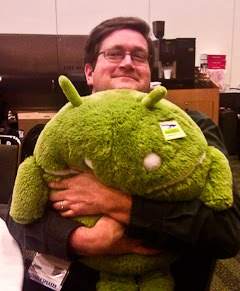Should the so-called “fragmentation” of the popular Android mobile OS concern Google? Well, not according to Dan Morrill, who described the over-used term as having “little to do” with reality.
“Nobody ever defined ‘fragmentation’ — or rather, everybody has a different definition. Because it means everything, it actually means nothing, so the term is useless,” the (Google) open source program manager wrote in an Android developers blog post.

“Stories on ‘fragmentation’ are dramatic and they drive traffic to pundits’ blogs, but they [are] a bogeyman, a red herring, a story you tell to frighten junior developers.”
Nevertheless, Morrill acknowledged there were “real challenges” in ensuring compatibility amongst various Android devices.
“[That’s why] compatibility [is such] a strict prerequisite for access to Android Market and the right to use the Android name.
“This means that developers can rely on the fact that Android Market — the keystone of the Android ecosystem — will only allow their apps to run on compatible devices.”
Morrill also commented on the fact that a “lot of ink has been spilled” by bloggers voicing their concerns over multiple versions of Android running on various mobile devices.
“While it’s true that devices without the latest software can’t run some of the latest apps, Android is 100% forward compatible — apps written properly for older versions also run on the newest versions,” explained Morrill.
“The choice is in app developers’ hands as to whether they want to live on the bleeding edge for the flashiest features, or stay on older versions for the largest possible audience. And in the long term, as the mobile industry gets more accustomed to the idea of upgradeable phone software, more and more devices will be be upgraded.”






